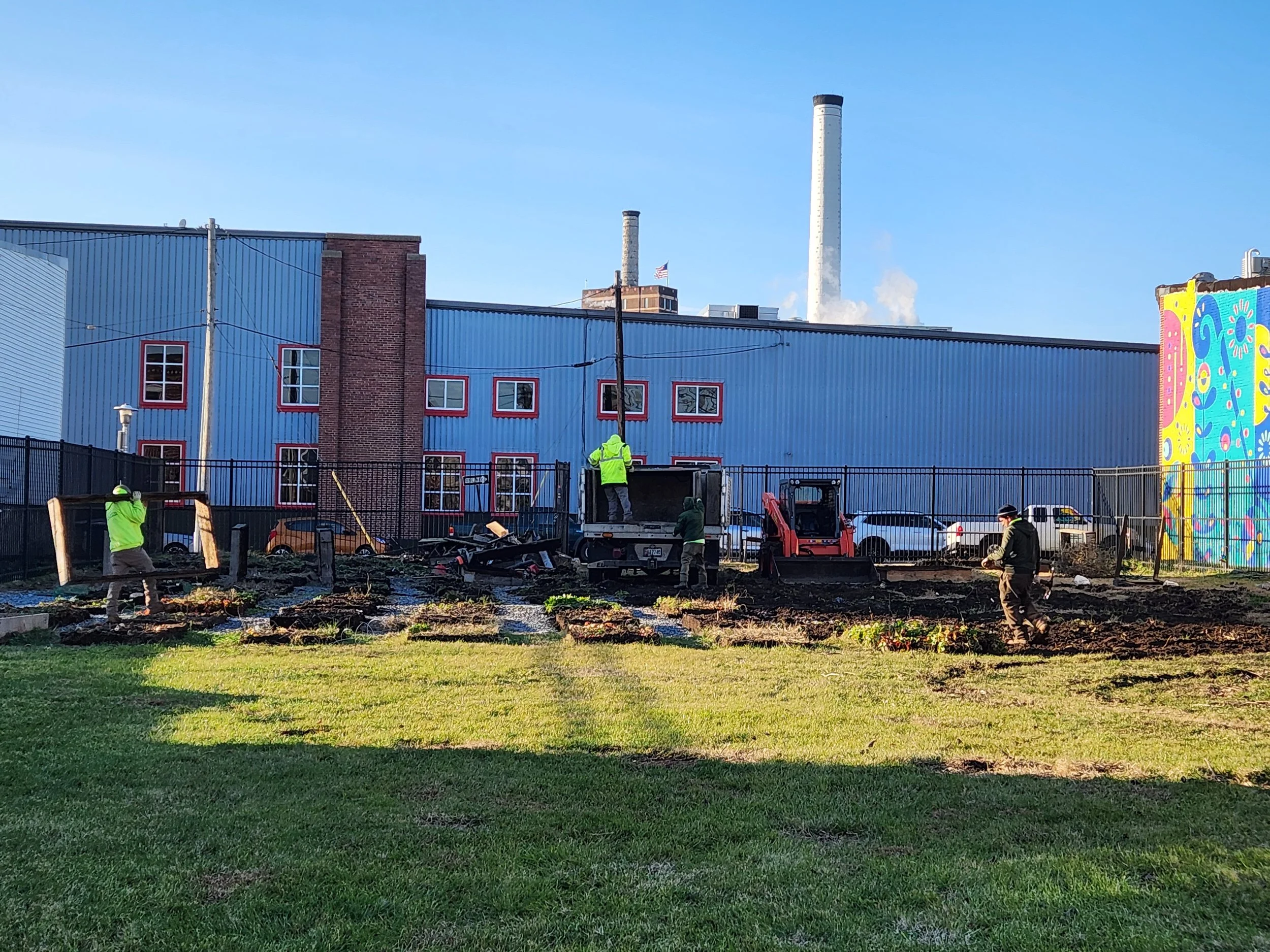Community gardens offer a plethora of benefits, from bringing people together and facilitating community building to providing fresh produce and education around growing food, as well as mitigating climate change impacts through green space preservation.
However, without proactive policies and planning from municipalities, community gardens are at risk of being shut down or being sold off to developers. Gardens face issues like insufficient long-term funding, lack of visibility and accessibility in the community.
Cities should prioritize preserving these valuable community assets through measures like land trusts, easements, replacement stipulations, integrative and sustainable zoning laws, and negotiation with housing developers where possible to retain garden space. Municipalities can also help address resource needs around ongoing garden maintenance and operations through establishment of dedicated financial support and facilitating educational initiatives on gardening.
Residents and community leaders themselves have an important role to play by organizing around garden preservation amid urban planning decisions as well as embracing opportunities to volunteer and help sustain the many social, health, environmental and community benefits these urban green spaces offer.
Community Garden Landscape
Click on any section below to jump directly to it.
Why Community Gardens are Important and Beneficial
Community gardens bring people together and create a sense of:
Purpose
Community
Civic Pride
They provide fresh, nutritious produce, which encourages healthier eating habits.
Gardening gently encourages mobility and fitness in a way that is accessible for people of all ages and abilities.
Community gardens also serve as outdoor classrooms that teach people valuable skills about growing their own food.
On an environmental level, community gardens help mitigate climate change by:
Drawing down carbon
Cooling the local area more than concrete would
Reduce depression and anxiety
Improving air and soil quality
Promoting biodiversity and reduce stormwater runoff
As green spaces, community gardens can also:
Lower stress
Decrease cortisol levels
Simply improve general wellbeing
Why Communities Should Actively Preserve Community Gardens
Communities should preserve community gardens because they:
Promote and sustain public health
Encourage civic responsibility and service
Lead to healthier, happier, and safer neighborhoods overall
Many existing community gardens already have long waitlists, demonstrating public desire for more such spaces as amenities.
With responsible urban planning, cities can accommodate both new housing and preservation of vital green spaces. The ideal locations for denser housing are parking lots and abandoned buildings, rather than displacement of community assets like gardens.
19% of community gardens lost every 5 years
Community gardens can close for a variety of reasons. Often municipalities do not proactively plan for their preservation amidst development pressures. The city may reclaim garden land to sell or developers may purchase the land.
Without strong leadership and community oversight, gardens can become neglected or exploited. Funding remains a persistent challenge as maintaining healthy soil, access to water, facilities, etc. involves considerable resources over time.
Specific issues like distance to a garden, lack of visibility, education barriers, and insufficient outreach to the wider community can also undermine long-term sustainability.
Why Gardens Face Closure and other Challenges
Locust Point Community Garden (MD; 2024)
Shut down when Under Armour evicted them. The land still sits vacant and unsold.
Garden in Noblesville, IN (2022)
Bulldozed by city because of complaints about overgrowth
Watsonville Community Garden (CA; 2023)
Neighbors complained there was “suspicious activity” on the property, so the church revoked their lease.
Focused: Hands (Detroit; 2022)
Land insecure. The garden was grown on property owned by a nonprofit. After three years, the nonprofit decided it no longer wanted the garden on its land.
Frogtown Farm (St. Paul; 2024)
On edge of closing; lease with city ended Dec. 2023
$150K in debt
BLM Garden (Black Star Farmers; Seattle; 2023)
Some white folks complained it was a racist garden (despite many other white folks supporting) so Seattle Parks & Rec dug up the garden and replaced it with grass
Examples of Recent Closures
Municipalities can plan for long-term land tenure of community gardens through binding policies, especially in disinvested neighborhoods. Establishing dedicated funding via a community garden fund or establishing a conservation land trust can make it more difficult to sell or develop the land.
Conservation easements are another option where a nonprofit buys development/use rights to preserve the garden space.
Sustainable zoning and urban agriculture promotion can permanently preserve gardens. Negotiating with developers to integrate gardens into housing plans is preferable to full removal.
Providing gardens with access to water, seeds and seedlings, and equipment can help to defray costs and help gardens thrive. Municipalities can work with residents to pursue grant funding for gardens as well.
Working with gardeners to address any community concerns around neglect or overgrowth can help prevent calls for closing the garden.
Legal action arguing adverse possession or pursuing historic designation are last resorts as these are more complicated and expensive.
Finally, replacement requirements mandating substitution of any displaced garden acres can provide a measure of protection.
Actions Municipalities and Citizens Can Take to Protect and Support Community Gardens
Register Your Garden
Register community gardens that are benefiting people and the planet as Climate Victory Gardens. Showing that a community garden has joined the over 26,000-strong Climate Victory Garden movement demonstrates the value of that garden to the local community and the environment. You can also find more tips for managing a community garden and register a garden with the American Community Gardening Association.
Sign Up for Gardening Webinars
If you'd like to learn more about climate victory gardening, join one of our gardening webinars! We've covered many topics in the past—from deep dives into topics like compost and cover-cropping, to introductory guidance—so please check out our YouTube channel to view past webinars.












